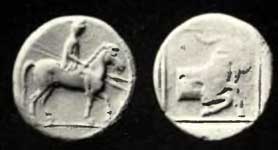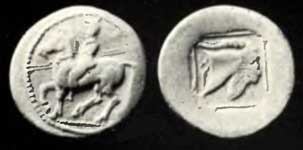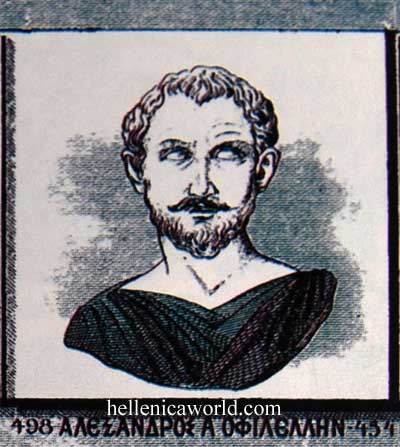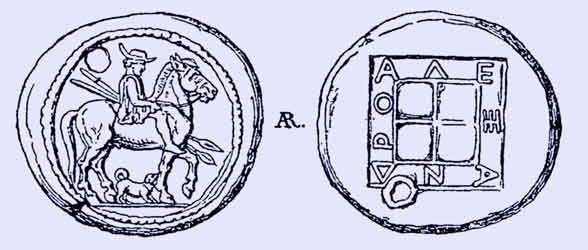.
Men of Athens, that which I am about to say I trust to your honour; and I charge you to keep it secret from all excepting Pausanias, if you would not bring me to destruction. Had I not greatly at heart the common welfare of Greece, I should not have come to tell you; but I am myself a Greek by descent, and I would not willingly see Greece exchange freedom for slavery. Know then that Mardonius and his army cannot obtain favourable omens; had it not been for this, they would have fought with you long ago. Now, however, they have determined to let the victims pass unheeded, and, as soon as day dawns, to engage in battle. Mardonius, I imagine, is afraid that, if he delays, you will increase in number. Make ready then to receive him. Should he however still defer the combat, do you abide where you are; for his provisions will not hold out many more days. If ye prosper in this war, forget not to do something for my freedom; consider the risk I have run, out of zeal for the Greek cause, to acquaint you with what Mardonius intends, and to save you from being surprised by the barbarians. I am Alexander of Macedon.
Herodotus, Histories 9


Alexander I of Macedon Stater, Rider with Kausia, Goat (as a symbol of Aegae)
Alexander I (Αλέξανδρος Α' ) was ruler of Macedon from 495 BC to 450 BC. He was the son of Amyntas I of Macedon.
According to Herodotus he was unfriendly to Persia, and had the envoys of Darius I killed when they arrived at the court of his father during the Ionian Revolt. However, he was forced to submit to Persia during the invasion of Greece by Darius' son Xerxes I, and he acted as a representative of the Persian governor Mardonius during peace negotiations after the Persian defeat at the Battle of Salamis in 480 BC. Despite his cooperation with Persia, he frequently gave supplies and advice to the Greeks, and warned them of Mardonius' plans before the Battle of Plataea in 479 BC. Alexander eventually regained Macedonia's independence after the end of the Persian Wars.

Alexander I of Macedon
Although Macedon was considered a semi-barbaric state by some Greeks (especially those whose colonies near Macedonia were threatened by Macedonian expansion), Alexander claimed descent from Argosian Greeks and Hercules. After a court of hellanodikai determined his claim to be true, he was permitted to participate in the Olympic Games, an honor reserved only for Greeks. He modeled his court after Athens and was a patron of the poet Pindar.
In 450 he was succeeded by his son Perdiccas II.

King of Macedon
Preceded by: Amyntas I
Succeeded by: Perdiccas II
| Ancient Greece
Science, Technology , Medicine , Warfare, , Biographies , Life , Cities/Places/Maps , Arts , Literature , Philosophy ,Olympics, Mythology , History , Images Medieval Greece / Byzantine Empire Science, Technology, Arts, , Warfare , Literature, Biographies, Icons, History Modern Greece Cities, Islands, Regions, Fauna/Flora ,Biographies , History , Warfare, Science/Technology, Literature, Music , Arts , Film/Actors , Sport , Fashion --- |
Retrieved from "http://en.wikipedia.org"
All text is available under the terms of the GNU Free Documentation License

